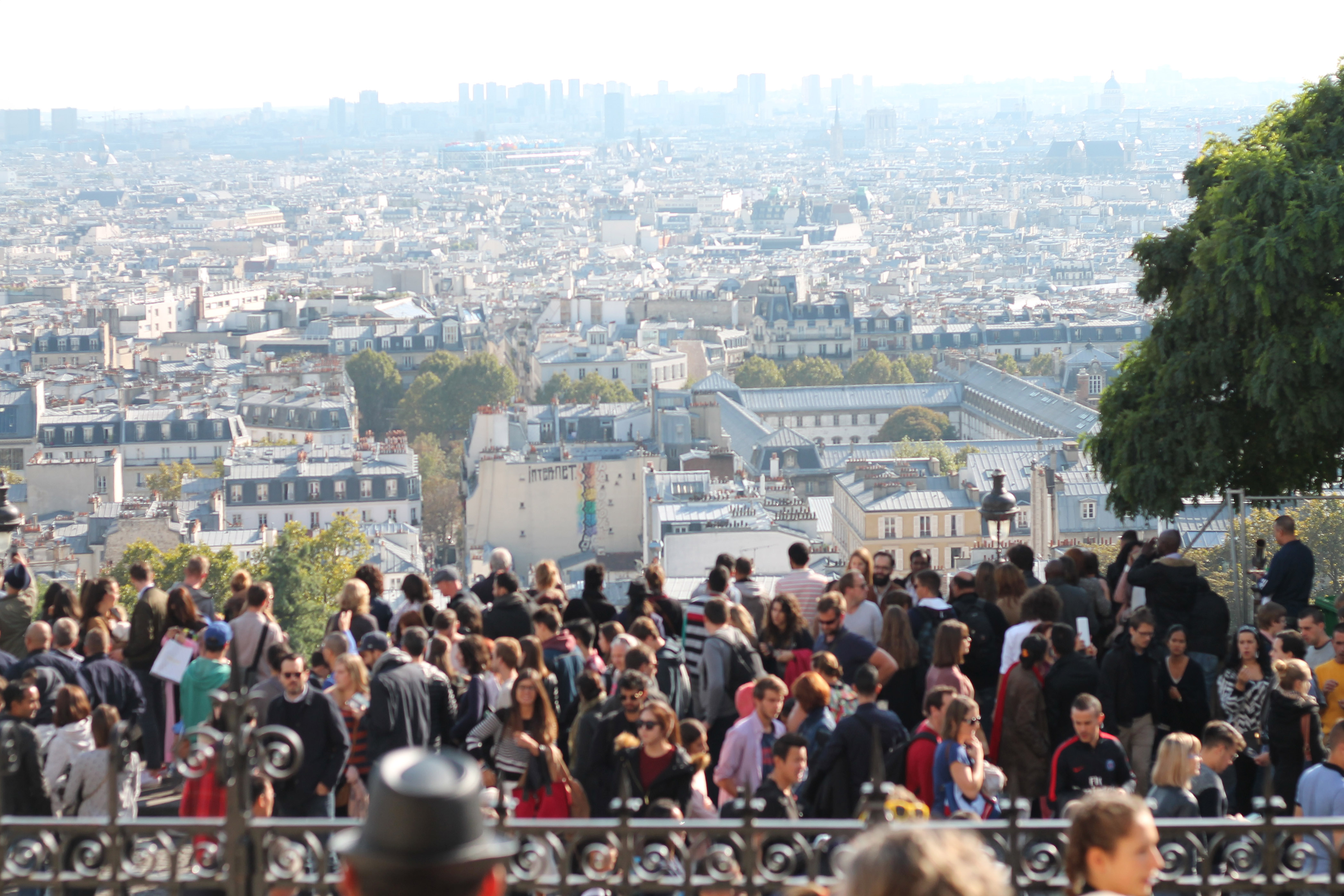High-tech/ Science/ Digital/ 4.0 Industry/ Sustainability. There is perceptible innovation for a conventional sense.
In another hand, Heritage/ Museums/ Conservation/ Archaeology. Maybe you mostly associate with the past, not with innovation. And what about the transdisciplinarity between technology and cultural heritage?
During the high-level conference Horizon 2020, the European Commission bet on this combination!

Professor Lykourentzou in the session: Cultural Heritage in the Digital Age. Ph: Anna Karla Almeida
The High-Level Conference Horizon 2020
Last month, Arzu Altinay and I were gifted with the invitation to attend and report to the High-Level Conference Horizon 2020. The Conference was an enriching and stimulating environment for innovation and the current European policies for the valorisation of Cultural Heritage through science and technology in Europe. The panels presented and the panorama offered by the different initiatives and strategies for Cultural Heritage in Europe gave us a broad vision of the actions of valorisation. To understand the framework of the programme, the Horizon 2020 program is basing your initiatives on a tripod:
- Excellent Science, to encourage, attract and retain scientists talents in Europe.
- Industrial leadership, to invest in research and innovation for production to create and grow jobs.
- Societal Challenges, finding in multidisciplinary contexts solutions to a better environment in Europe.
This agenda searches to inspire and promote adding value for cultural heritage through improvements of researcher’s centres. Some questions were asked by the speakers. What about the future, what is being done? What can we do to safeguard our cultural heritage through new technologies? How to promote cultural heritage sustainably?
“Cultural Heritage as the first and integrating pillar of sustainability – the institutionalisation of culture” Gábor Sonkoly
Better Cities for the next generations through technology
Personally, as an Architect and Urban Planner, I highlighted some panels that prove that cultural landscape is beyond common borders. As a student grant holder of the European Union through the Erasmus Mundus Program in Industrial Heritage at Panthéon-Sorbonne University, I believe animatedly of the potential that the researches innovation in the cultural extent can be development channels. In two years of the grant, passing through 4 countries, studying with all support with a high level of specialisation. I understand the complexes contexts of culture and heritage of industrial places in Europe. Also motivated me to share this experiences in different cultural landscapes in Heritage Times.
If we can consider that creative processes, innovation and cultural heritage are essential keys in Europe cities, life and environments, to promote the economic growth of the cultural heritage. They are inspiring the project of cities more integrated and knowledgeable with multi-cultural and multi-heritage environments.
The ROCK Project

Pamela Lama presenting the Rock Project Ph: Anna Karla Almeida
“ROCK focuses on historic city centres as extraordinary laboratories to demonstrate how Cultural Heritage can be a unique and powerful engine of regeneration, sustainable development and economic growth for the whole city.” ROCK Project

One of the Seminars of ROCK. Ph: Rivas Miguel – TASO
The Rock Project that means Regeneration and Optimization or Cultural heritage in creative and Knowledge cities, points to regeneration and adaptative reuse of the historic city centres for new sustainable environmental, social, economic processes.
The most interesting about this project is that they spread, “implementing a repertoire of successful heritage-led regeneration initiatives related to 7 Role Model selected cities: Athens, Cluj-Napoca, Eindhoven, Liverpool, Lyon, Turin and Vilnius.” Then, this management plans could be tested in another ” 3 Replicator Cities: Bologna, Lisbon and Skopje.” This model to create a circular network between different cities in Europe and promote the Cultural Heritage from each place to develop the cities centres are a reliable way to create sustainability in the digital era.

The ROCK Circle. Source:ROCK Project
MEMOLA FP7 Project

José Civantos from MEMOLA Project presenting the goals for the project. Ph: Anna Karla Almeida
Memola, that means MEditerranean MOntaneous LAndscapes, studies that “historical landscapes formation about natural resources within a diachronic framework. Introduce the historical perspective (4th dimension), which we consider to be a powerful interpretation key, in landscape studies”. In this dimensions, different variables are considered as the local ecological knowledge, biodiversity, governance, productivity and resilience. Between Spain, Italy and Albania, four historic sample areas are they Mediterranean mountain landscapes: Sierra Nevada (Granada-Almería, Spain), Monti di Trapani (Trapani, Italy), Colli Euganei (Padova, Italy), Vjosa Valley (Albania).

Landscapes and routes traced by MEMOLA Project in Monti di Trapani, Sicily. Ph: Lara Delgado.
“Conservation can be achieved through the exploitation of this heritage to generate environmental and cultural conservation strategies for sustainable development in rural areas; with the aim of protecting this cultural heritage and, at the same time, increasing and transmitting knowledge about it in order to benefit the local and wider European society.” MEMOLA
In the two cases, urban landscapes and natural landscapes are immersing in a rich environment sustained by innovation and research projects for Cultural Heritage as the Horizon 2020. That’s the way to create innovation in Cultural Landscapes for smart cities and better ways to maintain our heritage for the next generations.
If you want to know more about the themes presented in the Conference, The Official Report is now online here.
If you want to know more about the ROCK Project: https://rockproject.eu/about
If you want to know more about the MEMOLA FP7 Project: http://memolaproject.eu/
Article: Anna Karla Almeida. A Special thanks to all Creative Europe team and Europa Nostra to provide our participation and to collaborate with the media!
XXXXXXXXXXXXXXXXX